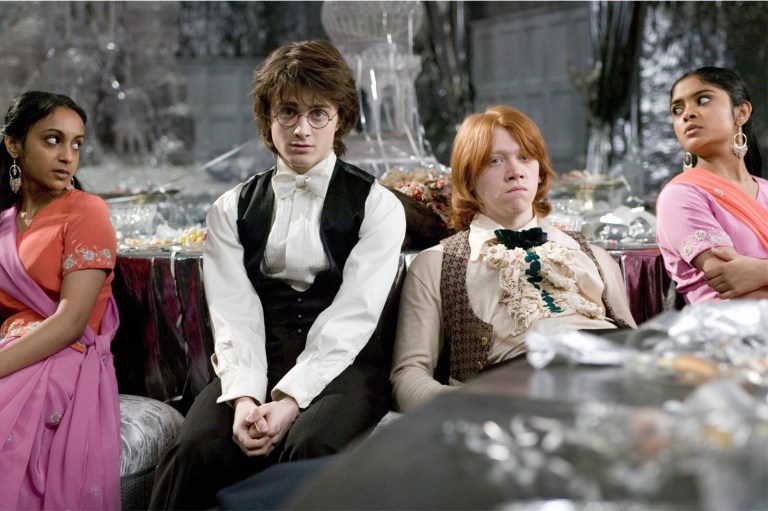
Dialogue: 10 Reasons You Shouldn’t Date A Mexican Man
My question to you is a plain one: Do you think after reading the feedback, what you wrote was wrong in the sense that it took one experience with one person from one culture and made a generalization about an entire culture based on that?

Kovie:
Hi Trisha,
Having hopefully read these pieces here and here. Did you perhaps understand why your article may have had a negative response? And what was your reaction to the negative response? Did you think it wasn’t warranted? Do you see the other side of the argument? And what has been going through your mind these past few days?
Trisha:
Hey Kovie,
Thanks for reaching out. I’ve read the links you fired over and I love how you emphasised the important points. I think it’s good that the article received negative response(s). It means people care and want to share their opinions. They want to be a part of an issue that is very important. It’s good to see and read people’s opinions from different walks of life, to be honest. We can look at the same thing and see it in different ways and that’s what I love about the nature of being human. Opinions, be it negative or positive, make me understand that we are all different but we have to understand and respect each other’s thoughts
I totally get what other people think about what I wrote but I would like to say that these are based on personal experience. It didn’t mean to offend, to hurt, to favour nor criticise a particular race. I’ve been traveling South America for two years now and believe me when I say I met a lot of people in this journey and I respect their difference. I am a people person and I always gain insights from people whose background are different from mine. I wrote this because one of my friends from A Journey of Wonders Travel Blog asked me to. So I sat down, at the nearest coffee shop in Cordoba, Argentina three months ago and started writing, without editing. Free thinking. I just recalled the good times I had with my Mexican ex boyfriend and that’s the result of it. I didn’t read any related article(s). After thirty minutes, I finished the piece and I was happy about it. It was more about self-expression and sharing tangible, genuine experiences.
For the past few days, I was thinking how this article which I wrote in November last year gained too much attention. It’s too overwhelming but I am very glad that people want to be involved. I am planning to write an article about the things I learned from negative blog comments. Life is a never ending series of learning and the people around us help in that process.
Kovie:
Thanks for the response Trisha. My question to you is a plain one: Do you think after reading the feedback, what you wrote was wrong in the sense that it took one experience with one person from one culture and made a generalization about an entire culture based on that? And what do you think about the idea of “positive racism?” Do you think that your piece may have been an act that exemplified that or do you think your piece did not come close.
Now I believe that context is important both in terms of your personal context and the context of race and attraction dynamics of the world at large. For example, this piece http://thoughtcatalog.com/nikolao-montaya/2014/09/5-reasons-men-love-asian-girls/ was another one in the context of race and relationship that got banned by the community. I would be wrong to parallel your piece to this one because it is simply not on the same level, not to mention the fetsihization of asian women has been socially and historically located in infantalization and the like, and has come under greater scrutiny in recent year. However, how much do you think your cultural identity plays a role in the article? And what do people (mostly an American audience) need to understand about the context you’re coming from?
Trisha:
First, I am totally over the phase of explaining myself. I am done with living a life based on what other people think. Yes, I might have said a particular race, which is Mexican but I said beautiful things about them. After reflecting and re-reading what I wrote, I realised I got carried away and justified the things with my opinion only. That’s what free-thinking is all about, you know. However, I still believe in what I wrote. In addition, there are people who read it and liked it too. Proof that everyone sees a particular subject in different ways.
Your website is called Thought Catalog. Meaning, people have the chance to express themselves and write how they see things in their eyes. Though I believe in freedom of expression, like what I said, that does not give me the right to be a reckless writer. I just wanted to write something and I am happy that this lead me to discover that I have so much to learn about publishing articles publicly. After reflecting on the article that I wrote and getting these mixed reactions from the readers, I realised that it’s just really a matter of perspective. I was coming from a position that’s entirely based on my personal feelings and experiences, which was meant to be a satire piece and not something that would promote insensitivity and racism. For that, I apologize if I may have offended some of the readers who read it as the latter.
Although I believe in freedom of expression, it certainly does not give me the right to be a reckless writer. Nonetheless, writing it was a chance for me to express my personal take on why Mexican men are actually date-able. It’s just more of how people can read between the lines after that.
Kovie:
Trisha, Thanks again for your insights. Understandably, it might seem odious to explain your perspective given how you describe your intentions. But it also feeds into the larger discussion of race, culture, and attraction. What do you think is to be learned in terms of describing a positive relationship with a person from a different culture?
I think what stuck out to people particularly was your example of hot sauce reminding you of your Mexican ex-boyfriend. Forgetting my Africanness for a second and focusing solely on Blackness, if someone were to describe, in part, their memory of methrough a reminder of fried chicken, I would find that deeply problematic. I don’t know if you can think of an equivalent for yourself perhaps.
Ultimately what do you think is the big lesson here for everyone? Understanding your context as well as perhaps that of (some of) the audience?
Trisha:
Hey Kovie,
I was trying to be funny when I said something about the hot sauce. I think readers should not take it literally. It was stated that way to be able to add some humour in the post but that doesn’t mean I see a walking hot sauce to every Mexican man I meet.
The big lesson here for everyone, or every writer per se is to be culturally sensitive whilst expressing their thoughts. However, I don’t believe in write or wrong thoughts. Ideas are made to be expressed so we can learn from it in the process. But IT HAS TO BE EXPRESSED FIRST. As for the readers, I think they should open their minds and try to understand that we, humans, don’t have the same experiences. This is also the best time to encourage everyone to write. Writing is an art. A form of expression. Many say they are not good writers but leaving a comment on other people’s articles is a form of writing itself. Write, write and write so you can share your thoughts to the world and may it end up really really really beautiful. ![]()











